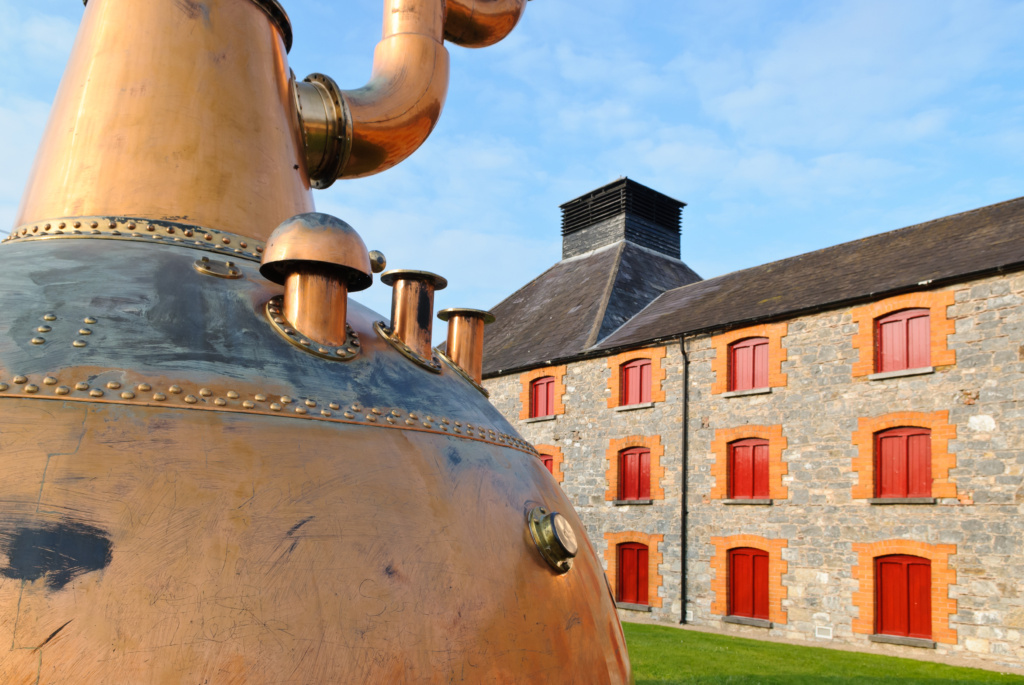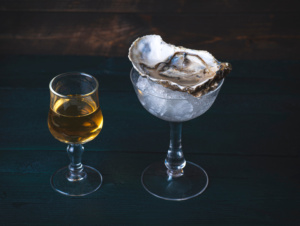Is All Irish Whiskey Triple-Distilled?

Single pot still whiskey became the preferred type of Irish whiskey, first because of a tax on malted barley that was introduced in 1785, and secondarily because tastes changed to suit this spicy and red-fruits laden spirit. Even when the tax was repealed, it remained popular. Triple distillation therefore became very widespread in the industry, not necessarily to achieve an ultra-smooth dram, but because a third round of distillation was necessary to extract more alcohol from the lower-yielding mash of malted and unmalted barley. Though, not all chose to complete this extra step and there were distilleries all over Ireland which only double-distilled their liquid.

The dominance of Irish whiskey began to decline in the early 20th century, as their Scottish long-time rivals adopted the more efficient Coffey still and Prohibition was established in the USA. This was where the myth likely laid its roots. To set themselves apart from Scotch, Irish whiskey was professed to be smoother, softer and more mellow due to the effort put into triple distilling every drop. This was reaffirmed after the Irish War of Independence, when most distilleries closed up shop - leaving only Bushmills and New Midleton Distillery by the 1970s. These two titans of whiskey triple distilled their liquid and so, for a time, it was true that all Irish whiskey was triple distilled.
It's therefore commonly thought that for a whiskey to be classified Irish, it must be triple distilled. However, many distilleries which have opened their doors since, such as Teeling, Waterford and Dunvilles only double-distil their liquid. Bushmills and Jameson, made at the oldest distilleries in Ireland and Northern Ireland continue to do so - holding on to their traditional roots.
Explore all our Irish Whiskey, here.
FAQ
- How does the choice between triple distillation and double distillation affect the flavour profile of Irish whiskey? Triple distillation tends to produce a lighter and smoother spirit by removing more impurities and congeners during each distillation cycle. This can result in a cleaner, more delicate flavour profile with subtle fruit and floral notes. On the other hand, double distillation typically retains more of the original flavours from the ingredients, resulting in a richer, more robust whiskey with deeper flavours and a fuller body.
- Are there any specific technical or practical reasons why certain distilleries choose to double distil their whiskey rather than triple distil, besides historical tradition? Distilleries may choose to double distill their whiskey for various technical and practical reasons. Double distillation can be a more cost-effective and efficient process compared to triple distillation, as it requires fewer distillation cycles and consumes less energy. Additionally, some distilleries believe that double distillation allows them to preserve more of the original flavours and character of the whiskey, resulting in a product with a distinct profile that appeals to consumers seeking authenticity and tradition.
- Are there any regulations or standards set by Irish whiskey governing bodies regarding the distillation process, particularly regarding triple distillation? As of the provided information, there are no specific regulations or standards set by Irish whiskey governing bodies mandating triple distillation for classification as Irish whiskey. While triple distillation has historically been associated with Irish whiskey production, it is not a legal requirement. The choice of distillation method is typically left to the discretion of individual distilleries, allowing for variation in production techniques and flavour profiles within the category of Irish whiskey.
 4.7/5 with 10,000+ reviews
4.7/5 with 10,000+ reviews







